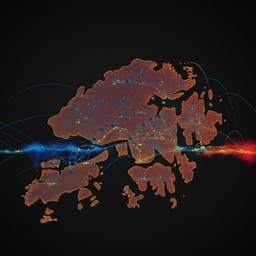
Political Science
Social axiom and group identity explain participation in a societal event in Hong Kong
S. X. Chen, J. C. K. Ng, et al.
This intriguing study by Sylvia Xiaohua Chen, Jacky C. K. Ng, and Wesley C. H. Wu explores the cognitive and emotional factors that motivate participation in societal events, using the 2014 Hong Kong protests as a case study. Through daily diary measures, they reveal how social identity and group-related feelings significantly propel individuals toward active protest engagement. Discover the emotional landscape that drives social movements!
Playback language: English
Related Publications
Explore these studies to deepen your understanding of the subject.







